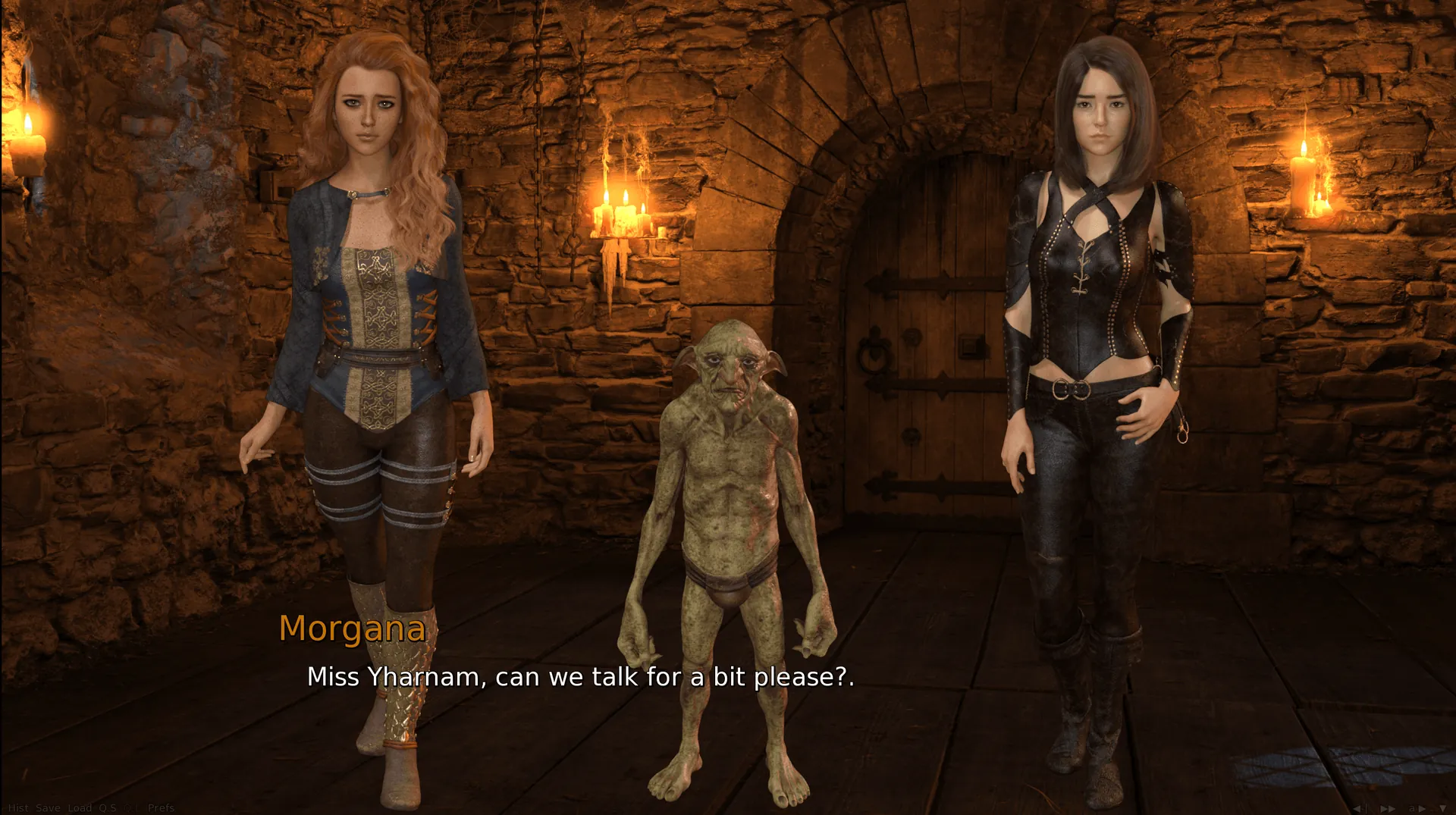
Heart Problems
Play Heart Problems
Heart Problems review
Exploring the gameplay, characters, and social impact of this adult dating simulator
The Heart Problems porn game has sparked both curiosity and controversy in the adult gaming community. This erotic visual novel from developer Xenorav challenges players with taboo relationships and complex character dynamics. Through my 40-hour playthrough and analysis of community feedback, I’ve uncovered what makes this game simultaneously compelling and problematic. Let’s explore its unique blend of family drama and explicit content, while examining why it’s become a polarizing entry in the adult gaming genre.
Gameplay Mechanics and Story Overview
Core Dating Sim Mechanics Explained
Let’s cut to the chase: Heart Problems isn’t your grandma’s visual novel. 🎮 This adult visual novel gameplay thrives on dating sim mechanics that feel equal parts addictive and emotionally charged. Picture this: you’re navigating a minefield of flirtatious dialogue choices, managing relationship meters that swing faster than a pendulum, and praying your decisions don’t accidentally land you in the “friend zone” with your step-sister. Yeah, it’s that kind of game.
At its core, the gameplay revolves around dialogue choices that shape your relationships. Every conversation feels like a high-stakes poker game—bluff wrong, and you’ll watch those affection points plummet. 😬 For example, choosing to comfort your step-sister after a fight might boost her meter by 20%, but cracking a joke instead? Instant regret. I learned this the hard way when my first playthrough ended with my character alone, eating ramen in a dimly lit apartment. 🍜
The relationship meters aren’t just eye candy. They’re color-coded, dynamic, and tied to specific story triggers. Want to unlock steamy scenes or heart-wrenching confessions? You’ll need to balance attention between characters like a circus performer juggling chainsaws. 🔥 And let’s not forget the multiple endings guide-worthy finale system—your choices snowball into 12 possible conclusions, from wholesome family bonding to… well, let’s just say complicated romantic entanglements.
| Game | Romance Progression | Key Mechanics |
|---|---|---|
| Heart Problems | Dynamic meters with mood-based reactions | Time-sensitive choices, hidden affinity scores |
| Being a DIK | Karma system + stat checks | Mini-games, collectible rewards |
| Summertime Saga | Sandbox-style exploration | Resource management, skill upgrades |
👉 Pro tip: Save often. One wrong “Hey, stepsis” could cost you 4 hours of progress.
Branching Narrative Structure Analysis
If Heart Problems’ story were a tree, it’d be a Banyan—roots everywhere, branches colliding, and zero chill. 🌳 The branching story paths aren’t just about picking love interests; they force you to grapple with consequences that ripple across weeks of in-game time. Miss a key interaction? That side character you forgot about might ghost you permanently.
Here’s where it gets clever: the game uses a “memory system” where characters recall your past actions. Tell your step-mom you hate sushi in Chapter 2? Don’t expect her to invite you to that fancy restaurant in Chapter 5. 🍣 These subtle callbacks make the taboo relationship dynamics feel unnervingly real. You’re not just checking boxes on a harem list—you’re building (or burning) bridges through every smirk, sigh, or poorly timed text message.
What blew my mind was discovering how two playthroughs can diverge wildly. During my second run, I focused on mending family tensions instead of chasing romance. The result? A bittersweet ending where my character became the family therapist instead of the heartthrob. 🛋️ It’s this flexibility that elevates the adult visual novel gameplay beyond cheap titillation.
“Branching narratives aren’t new, but Heart Problems makes them matter. You feel the weight of every ‘Are you sure?’ prompt.” — Reddit user @VN_Junkie
Controversial Theme Implementation
Let’s address the elephant in the room: the taboo relationship dynamics. 🔞 Heart Problems doesn’t just flirt with controversy—it slow-dances with it under a strobe light. But here’s the twist: it frames these relationships through a lens of emotional vulnerability rather than pure shock value. The step-family angle is baked into the narrative as a source of tension, not just a cheap plot device.
Take the game’s approach to dialogue choices during intimate moments. Instead of cartoonish seduction options, you’re often picking between gentle reassurance or awkward deflection. One scene had me literally pause the game when my character’s step-sister confessed her feelings—do I lean into the moment or shut it down? There’s no “right” answer, just messy, human stakes. 💔
Compared to Being a DIK’s frat-house humor or Summertime Saga’s playful tone, Heart Problems leans into drama. The dating sim mechanics serve the story, not the other way around. Even the “corruption” path (yes, it exists) requires careful manipulation of trust over multiple chapters. You can’t just spam heart emojis and expect results—this isn’t Tinder.
🚨 Hot take: The controversy overshadows what the game does best—writing flawed characters who make bad decisions for relatable reasons.
So, Should You Play It?
If you’re craving adult visual novel gameplay with teeth, Heart Problems delivers. Its branching story paths reward careful planning, the dating sim mechanics punish impulsivity, and the multiple endings guide you toward either redemption or glorious chaos. Just don’t expect to walk away with clean hands—this game lives in the gray areas.
Now if you’ll excuse me, I have a date with my third playthrough. Wish me luck—this time, I’m aiming for the “happily ever after” ending. Or maybe the one where everyone moves to Alaska. 🏔️
While Heart Problems delivers compelling storytelling and complex characters, its controversial themes demand thoughtful engagement. The game’s strength lies in its emotional authenticity, though players should approach its adult content with self-awareness. For those curious about modern erotic visual novels, it offers a memorable experience – just remember to set healthy playtime limits and maintain real-world connections.





















